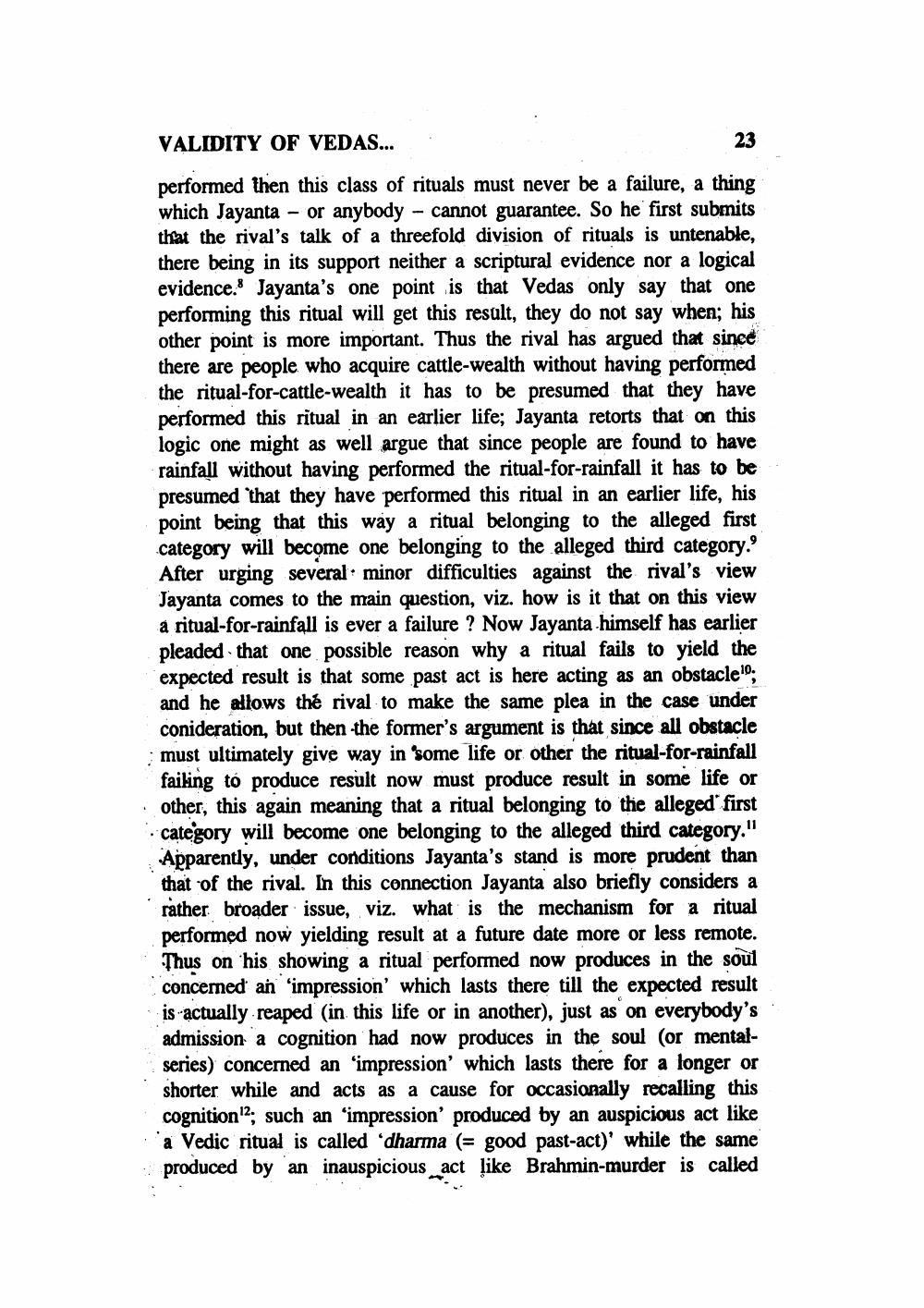________________
23
VALIDITY OF VEDAS...
performed then this class of rituals must never be a failure, a thing which Jayanta or anybody cannot guarantee. So he first submits that the rival's talk of a threefold division of rituals is untenable, there being in its support neither a scriptural evidence nor a logical evidence. Jayanta's one point is that Vedas only say that one performing this ritual will get this result, they do not say when; his other point is more important. Thus the rival has argued that since there are people who acquire cattle-wealth without having performed the ritual-for-cattle-wealth it has to be presumed that they have performed this ritual in an earlier life; Jayanta retorts that on this logic one might as well argue that since people are found to have rainfall without having performed the ritual-for-rainfall it has to be presumed that they have performed this ritual in an earlier life, his point being that this way a ritual belonging to the alleged first category will become one belonging to the alleged third category." After urging several minor difficulties against the rival's view Jayanta comes to the main question, viz. how is it that on this view a ritual-for-rainfall is ever a failure? Now Jayanta himself has earlier pleaded that one possible reason why a ritual fails to yield the expected result is that some past act is here acting as an obstacle and he allows the rival to make the same plea in the case under conideration, but then the former's argument is that since all obstacle must ultimately give way in some life or other the ritual-for-rainfall failing to produce result now must produce result in some life or other, this again meaning that a ritual belonging to the alleged' first category will become one belonging to the alleged third category." Apparently, under conditions Jayanta's stand is more prudent than that of the rival. In this connection Jayanta also briefly considers a rather broader issue, viz. what is the mechanism for a ritual performed now yielding result at a future date more or less remote. Thus on his showing a ritual performed now produces in the soul concerned an 'impression' which lasts there till the expected result is actually reaped (in this life or in another), just as on everybody's admission a cognition had now produces in the soul (or mentalseries) concerned an 'impression' which lasts there for a longer or shorter while and acts as a cause for occasionally recalling this cognition; such an 'impression' produced by an auspicious act like a Vedic ritual is called 'dharma (= good past-act)' while the same produced by an inauspicious act like Brahmin-murder is called




